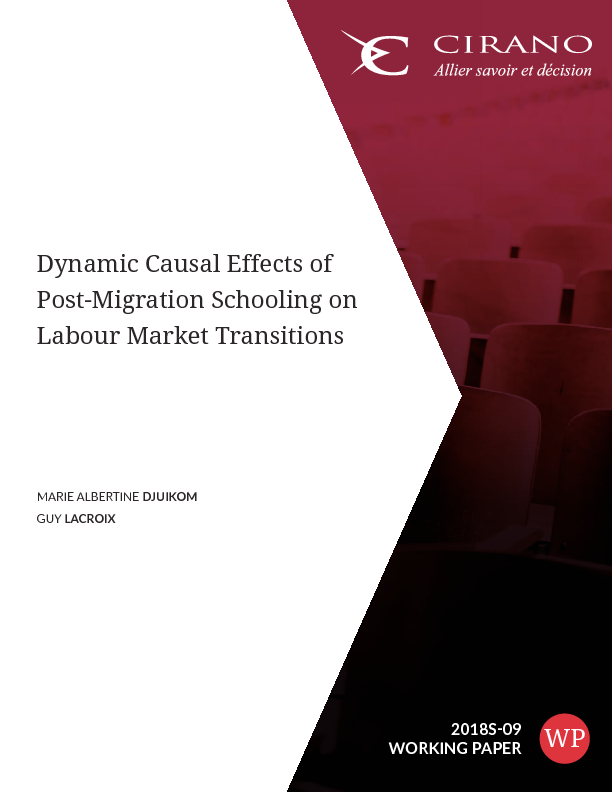Dynamic Causal Effects of Post-Migration Schooling on Labour Market Transitions
Immigrants often experience diÿculties integrating the local labor market. In Canada, the govern-ment of Quebec implemented a program back in 1996 that explicitly selected highly qualified workers (Bachelors’, Masters’ or PhD’s). This paper investigates the extent to which the return to foreign-acquired human capital is di˙erent from the education acquired in Quebec. Specifically, we seek to estimate the benefits of post-migration education over foreign-education on the transitions between qualified and un-qualified jobs and unemployment by means of a multiple-spells and multiple-states model. Our results indicate that immigrants originating from well-o˙ countries have no need to further invest in domestic education. On the other hand, immigrants from poorer countries, despite being highly qualified, benefit greatly from such training in the long run as it eases their transitions into qualified and unqualified jobs and out of unemployment. Our results also indicate that selection into domestic education needs to be accounted for to avoid significant selection problems.




